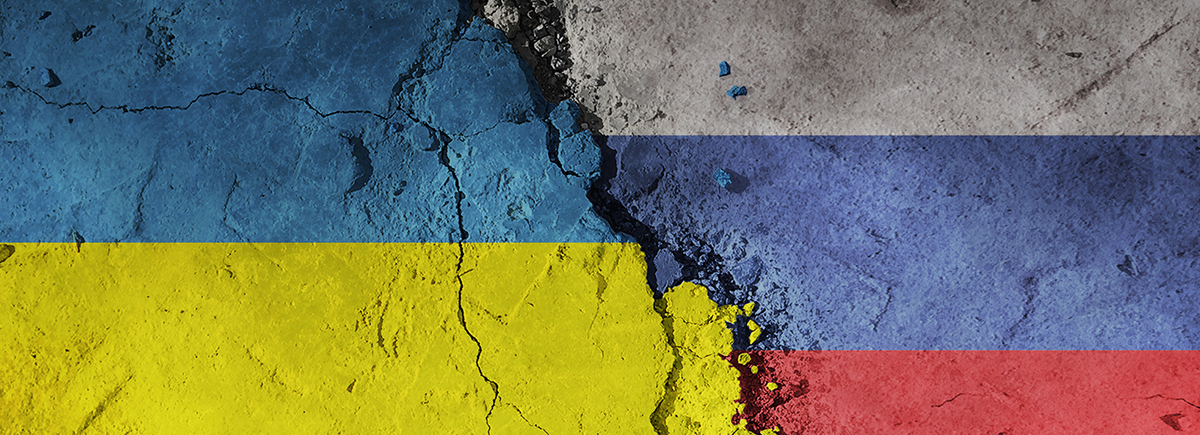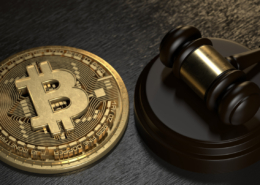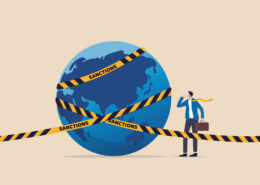Risky Russia
Government Agencies Warn Businesses of Possible Trouble
📅 March 5, 2024
📅 March 5, 2024
The US Departments of State, Treasury, Commerce, and Labor recently issued a business advisory warning firms and financial institutions about the serious legal, financial, and reputational risks of doing business in Russia. According to the State Department’s assessment, Russia’s kleptocratic environment undermines fair competition and the rule of law, exposing businesses to the risk of extortion, appropriation of assets, and US law enforcement action. Although rigorous due diligence can somewhat mitigate those risks, substantial reputational and financial damage is likely to remain.
Sanctions Risk
The United States and its partners since Russia’s invasion of Crimea in 2014—and particularly since its full-scale attack on Ukraine in 2022—have used sanctions to limit Russia’s access to resources and hinder its war efforts. Thousands of individuals and entities have been designated, services and activities such as legal consultations and new investments in Russia have been prohibited, the Crimea, Donetsk, and Luhansk regions of Ukraine that were illegally annexed by Russia have been embargoed (the EU and the UK have also imposed comprehensive geographic prohibitions on Kherson and Zaporizhzhia), and stringent trade controls have been implemented to limit Russia’s ability to equip its military. Firms and financial institutions must understand their sanctions risks or face possible enforcement actions or financial penalties.
Strategic Trade Controls
The Commerce Department’s Bureau of Industry and Security (BIS) since the beginning of Russia’s invasion has implemented stringent trade controls aimed at restricting Russia’s access to equipment and technologies that help it conduct its war against Ukraine. The joint business advisory warns that the export, re-export, or transfer to Russia or Belarus of thousands of categories of dual-use goods, technologies, machinery, parts, equipment, and luxury goods is tightly restricted. It also flags several joint alerts, advisories, and guidance documents to help stakeholders comply with export controls related to Russia and Belarus.
Money Laundering and Corruption
Businesses that transact in the Russian market must be aware of the risk of money laundering and other financial crimes, including the misappropriation of assets and bribery. The advisory encourages firms and financial institutions with proximity to the Russian market to conduct enhanced due diligence, ensuring that they comply with relevant laws, such as the Foreign Corrupt Practices Act, to mitigate the risk of legal liability.
Risk of Being Implicated in Violations of International Law
Businesses and individuals transacting in Russia or any of the illegally occupied territories in Ukraine risk being implicated in human rights abuses, war crimes, and crimes against humanity. The advisory reminds stakeholders that the UN General Assembly has condemned Russia’s invasion as a violation of international law, and that investigations conducted by the UN and prominent media outlets have documented multiple violations, including alleged genocide, the kidnapping and “russification” of Ukrainian children, rape, torture, and murder.
Russia has also committed human rights violations at home, intensifying efforts to eradicate dissent about the war in Ukraine or the Kremlin’s domestic policies, according to Human Rights Watch. Russian businesses are known for using prison labor and forced labor used as punishment for dissent, and the Russian government has prohibited all expression related to LGBTQ issues. The UN’s Special Rapporteur for Russia, Mariana Katzarova, in September cited almost 200 sources detailing the deterioration of civil and political rights in Russia and highlighted the lack of judicial independence and the right to a fair trial in the country.
Transacting with Russian entities that are known for engaging in human rights violations, as well as those that support Russia’s military, enabling further human rights violations and bloodshed in Ukraine, can damage the reputation of firms and financial institutions that continue to operate in the country.
Seizure of Assets
The joint business advisory also reminds companies that their exit could be considered by Russia as “unfriendly” and could result in legal hurdles and outright confiscation of assets. Media reports in September said that Russia is imposing increasing costs for foreign banks wanting to exit the Russian market, demanding they first unfreeze Russian assets. Russia last year also seized control of the Russian subsidiaries of French yogurt company Danone and Danish beer company Carlsberg, after Moscow introduced new legislation allowing it to seize the assets of firms from “unfriendly” countries. The companies are only authorized to sell their Russian assets for a maximum of half their value and must make a 5-10 percent “voluntary contribution” to Russia’s war chest of the sale price.
The business advisory details other risks companies transacting with Russian entities face and recommends extra research to comply with OFAC sanctions, the Bank Secrecy Act, and other pertinent regulations.

The Institute for Financial Integrity hosted a webinar to mark the two-year anniversary of Russia’s invasion of Ukraine on February 24, 2022. Watch the recording, during which IFI’s Nicki Kenyon and Pavel Verkhniatskyi, Managing Partner of Ukrainian due diligence and corporate intelligence firm COSA, discuss two years of sanctions, restrictions, and other measures countries around the world have implemented.
This is an outstanding opportunity to hear from an expert on the ground in Ukraine and understand compliance, due diligence, and investigations into Russia’s efforts to evade sanctions from Ukraine’s perspective.

Two years after its full-scale invasion of Ukraine, Russia has become the most sanctioned country in the world, with world powers imposing thousands of sanctions and other restrictions against Russian individuals, entities, vessels, and aircrafts. Strategic trade controls have become a substantial part of efforts to degrade Russia’s military capabilities and weaken its ability to wage war. At the same time, Moscow continues to come up with innovative and complicated ways to evade sanctions and trade restrictions and gain access to necessary resources to continue its aggression in Ukraine.










 Binging Griselda? Let’s Talk Drug Trafficking Sanctions
Binging Griselda? Let’s Talk Drug Trafficking SanctionsThis site uses cookies. By continuing to browse the site, you are agreeing to our use of cookies.
Accept settingsHide notification onlySettingsWe may request cookies to be set on your device. We use cookies to let us know when you visit our websites, how you interact with us, to enrich your user experience, and to customize your relationship with our website.
Click on the different category headings to find out more. You can also change some of your preferences. Note that blocking some types of cookies may impact your experience on our websites and the services we are able to offer.
These cookies are strictly necessary to provide you with services available through our website and to use some of its features.
Because these cookies are strictly necessary to deliver the website, refusing them will have impact how our site functions. You always can block or delete cookies by changing your browser settings and force blocking all cookies on this website. But this will always prompt you to accept/refuse cookies when revisiting our site.
We fully respect if you want to refuse cookies but to avoid asking you again and again kindly allow us to store a cookie for that. You are free to opt out any time or opt in for other cookies to get a better experience. If you refuse cookies we will remove all set cookies in our domain.
We provide you with a list of stored cookies on your computer in our domain so you can check what we stored. Due to security reasons we are not able to show or modify cookies from other domains. You can check these in your browser security settings.
These cookies collect information that is used either in aggregate form to help us understand how our website is being used or how effective our marketing campaigns are, or to help us customize our website and application for you in order to enhance your experience.
If you do not want that we track your visit to our site you can disable tracking in your browser here:
We also use different external services like Google Webfonts, Google Maps, and external Video providers. Since these providers may collect personal data like your IP address we allow you to block them here. Please be aware that this might heavily reduce the functionality and appearance of our site. Changes will take effect once you reload the page.
Google Webfont Settings:
Google Map Settings:
Google reCaptcha Settings:
Vimeo and Youtube video embeds:
You can read about our cookies and privacy settings in detail on our Privacy Policy Page.
Privacy Policy